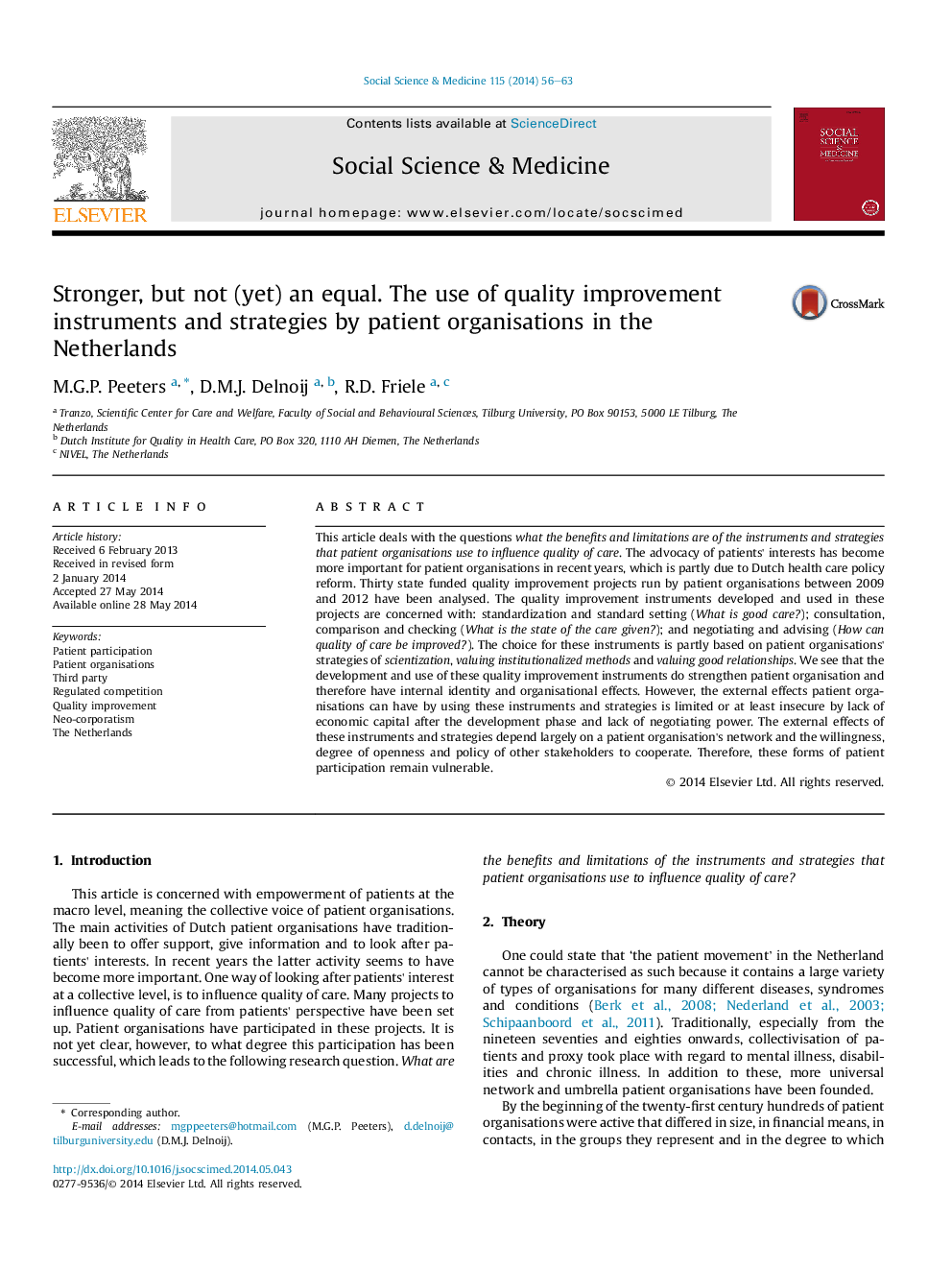| Article ID | Journal | Published Year | Pages | File Type |
|---|---|---|---|---|
| 952270 | Social Science & Medicine | 2014 | 8 Pages |
•Patient organisations' influence on quality of care in a system with regulated competition.•Cooperation is a much used strategy among Dutch patient organisations.•Dutch patient organisations try to reinforce by making their input more systematic.•Many Dutch patient organisations remain dependent on health care insurers and providers to influence quality of care.
This article deals with the questions what the benefits and limitations are of the instruments and strategies that patient organisations use to influence quality of care. The advocacy of patients' interests has become more important for patient organisations in recent years, which is partly due to Dutch health care policy reform. Thirty state funded quality improvement projects run by patient organisations between 2009 and 2012 have been analysed. The quality improvement instruments developed and used in these projects are concerned with: standardization and standard setting (What is good care?); consultation, comparison and checking (What is the state of the care given?); and negotiating and advising (How can quality of care be improved?). The choice for these instruments is partly based on patient organisations' strategies of scientization, valuing institutionalized methods and valuing good relationships. We see that the development and use of these quality improvement instruments do strengthen patient organisation and therefore have internal identity and organisational effects. However, the external effects patient organisations can have by using these instruments and strategies is limited or at least insecure by lack of economic capital after the development phase and lack of negotiating power. The external effects of these instruments and strategies depend largely on a patient organisation's network and the willingness, degree of openness and policy of other stakeholders to cooperate. Therefore, these forms of patient participation remain vulnerable.
